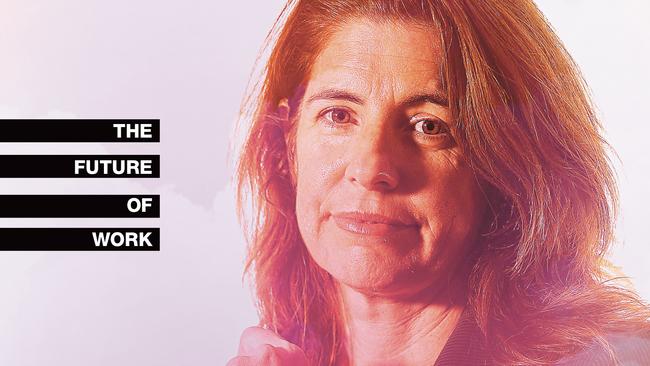Kellie Parker, managing director of Planning, Integration and Assets Iron Ore, Rio Tinto
Rio Tinto’s Kellie Parker says it’s essential that we learn how to problem-solve together

Australian educators are asking big questions about how schools need to adapt to educate the next generation. The Association of Independent Schools of New South Wales has commissioned a report titled “CEO Perspectives: The Future of Schooling in Australia”. Produced in partnership with Knowledge Society, the project involves interviews with leaders about their priorities and ideas for change. The Deal presents some edited extracts.
Kellie Parker, managing director of Planning, Integration and Assets Iron Ore, Rio Tinto
For the business unit you run, what skills and disciplines need to be strong?
My team and I look after the future of the iron ore business in the Pilbara – which mining developments will happen, what technology we’ll put in and how we’ll run. We have our automation strategy and technology stream, and in that we have 95 autonomous trucks, so trucks running around pits all unmanned managed from our remote operation centre [in Perth], and we’ll be shortly managing the biggest robots in the world – our autonomous trains. This is the biggest fleet of robots in the world. It’s super exciting.
As a mining business, you have core skills you would have from a mining engineer, a geologist to traditional professional skills. But we’re seeing that those skills need to be combined with some of the new skills of data science, artificial intelligence. And the reason is that you want to make good decisions, and some of these new technologies can help you and enhance your decision-making. But for it to work the geologist who makes decisions about what’s in the ground needs to understand how artificial intelligence decision tools work and combine those skills.
What does this mean for the classroom?
Working collaboratively in a classroom, that’s where you learn. So if you are used to rote learning or only learning by yourself, once you come to a workplace that needs to collaborate it’s really difficult. It’s really important that we collaborate, and we collaborate across all of our areas in our business. We need a much wider group of people to help run and make the best decisions to operate.
So what does this mean for schools?
What’s really important in schools is that you learn how to collaborate – how you problem solve together and how you bring your voice forward and how you listen to others and how you think through that, because no one person has the answer. And quite often you don’t need to be precisely right. You need to be right in a direction going forward. And you don’t have to have the exact answer. So multiple different opinions and hypotheses can be tested. Being curious, asking questions – why does it happen that way? Does it always happen that way? And the other thing that’s really important for kids to learn is, when you’re testing those hypotheses, how do you work out what’s fact and what’s fake?
If you were designing a high school of the future, what would it look like?
I would have much more industry and employer engagement with teachers. I think teachers are so influential and their professional development is around how they teach, which is really important, but they don’t always get the opportunity to know what’s going on in industry, and to educate themselves on what’s going on in industry so they can then be relevant to the students they’re teaching. Teachers are so influential in shaping young lives and they don’t always know what’s happening in industry.
-
Fact sources: How Young People Are Faring Report Card, FYA, 2015; New Work Order, FYA, 2015; Hanushek et al, Education and economic growth, 2008; Knowledge Society; Pilcher and Tori, Crunching the numbers, Mitchell Institute, 2018; New Work Smarts, FYA, 2017.













